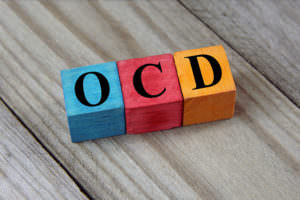9 Tips for Supporting a Heroin Addict without Encouraging Use
The first year of dealing with a family member’s addiction is the usually the worst. It is filled with uncertainty and overwhelming emotions such as fear, anger, worry and guilt. You find yourself constantly changing the direction of your life and having to adjust. Although it is natural to be sensitive and caring to a loved one, this isn’t the time to rationalize their behavior. If your loved one is addicted to opiates, their life is in danger. Below are some tips on how to help a heroin addict during recovery.
1. Learn everything you can about the addiction.
Look up information on heroin addiction so that you are aware of its effects on your family member. Get information on where to go and how to get off heroin. Be able to recognize the signs and look for evidence of use if the addict lives in your home. Missing objects around the house have significant meaning, especially aluminum foil, spoons and shoestrings..
2. Be observant to their routine.
One of the most important things to understand about heroin is that it is extremely addictive and users develop a physical dependence. With continued use, larger doses of the drug are needed to produce the same effect. Eventually it reaches a point where the addict must have the drug just to feel normal. If an addict doesn’t get their drugs, they begin to experience withdrawals which typically includes vomiting, diarrhea, insomnia, sweats, muscle aches and other painful symptoms. This is what drives addicts to seek heroin at all costs and may often result in illegal or immoral activities.
3. Find support for yourself.
Although family members can be sympathetic and comforting, unless they’ve actually had the experience of dealing with a family member that is addicted to heroin, it’s difficult for them to understand your situation. You’ll benefit most by seeking support from those who have been through it. Traditional support groups such as Al-Anon and Nar-Anon have helped many people cope with addicted family members. Blogging communities have also begun to appear where an informal group offers support for one another.
4. Realize that addiction is a disease.
Some may view drug use as a choice. While the actual drug use is a choice, addiction is not. It becomes all-consuming and there is no cure.
5. Be prepared for lack of empathy from others where addiction is concerned.
The harsh reality is that there is little sympathy or support for addiction. Whereas there are fundraisers and a vast amount of ongoing research to cure cancer, the addict is shunned by society and treated as a common criminal.
6. Understand that the entire family is affected by addiction.
Addiction can be destructive to anything and everyone in its vicinity. When a person sees heroin as their main reason for living, they often exhibit behavior uncharacteristic of their former selves. They often lie, steal or become violent. Everyone close to the addict is affected. It is important to get support for yourself to help cope with the stress and anxiety of the situation.
7. Don’t blame yourself.
Parents, especially, tend to blame themselves and wonder where they failed. People from all types of homes and families become addicted to drugs. Ninety-nine percent of addicts state that their drug use had nothing to do with what their parents did or did not do. Acknowledging this will save you a great deal of guilt and grief.
8. Don’t enable the addict.
There is confusion among many people about how to help a drug addict without “enabling” them. Some believe that doing anything for an addict that they can do for themselves is enabling them. Others take more extreme measures and provide nothing for an addict. They believe that eventually the addict will reach a point that they will choose to stop using drugs. The term, enabling, may mean different things depending on the situation. It is important to remember that addicts need to be given the opportunity to do things for themselves. It helps restore and maintain self-worth which is important in recovery efforts.
9. Always remain hopeful.
It has been said that relapse is part of the recovery process so don’t get discouraged if your loved one slips back. Opiate addictions are extremely difficult to overcome and the process is a lengthy one. It’s rare for an individual to go through rehab once and remain clean. But each day in rehab and each day without using is a step in the right direction.
Northbound Treatment Services can help individuals overcome opiate dependence and addiction. They understand that no two individuals are the same and offer customized treatment plans to meet each patient’s needs. Patients are treated by caring staff members in a comfortable environment. Northbound treats drug addictions as well as underlying causes such as co-occurring mental illnesses simultaneously. A variety of therapies and classes provide patients with coping and daily living skills to help them return to being productive members of society.
Author
-

President, CEO & Founder at Northbound Treatment Network
Paul Alexander is the CEO, President & Founder of Northbound Treatment Network in Newport Beach, California. He believes wholeheartedly in transformational leadership, organizational health and effective, fully integrated substance use disorder and mental health treatment. With over 27 years of experience in behavioral healthcare, Paul has extensive knowledge of “in vivo” treatment modalities, clinical development, operations, strategy, marketing and financial planning. He has been widely recognized for his development of collegiate-based residential treatment programs for students in recovery and authored a research study at The University of California confirming this modality’s effectiveness.
Paul’s comprehensive professional experience, willingness to innovate, and emphasis on organizational health are vital factors in Northbound’s continued success. Paul received his Certified Addiction Treatment Specialist training at Saddleback College in Mission Viejo, CA, and was awarded Outstanding Alumni Service Award in 2002. Paul holds a Bachelor of Arts degree in Criminology, Law and Society, Summa Cum Laude, from University of California, Irvine, and a Juris Doctorate degree from Loyola Law School of Los Angeles. Paul currently serves on The National Association of Addiction Treatment Providers (NAATP) board. In addition, he serves on The Family Recovery Foundation board and The CarePossible board in Orange County; both organizations are committed to raising funds for family recovery and treatment for former military personnel. Paul is in recovery himself and lives in Orange County with his wife Silvana and his two young sons, Noah and Dean.










